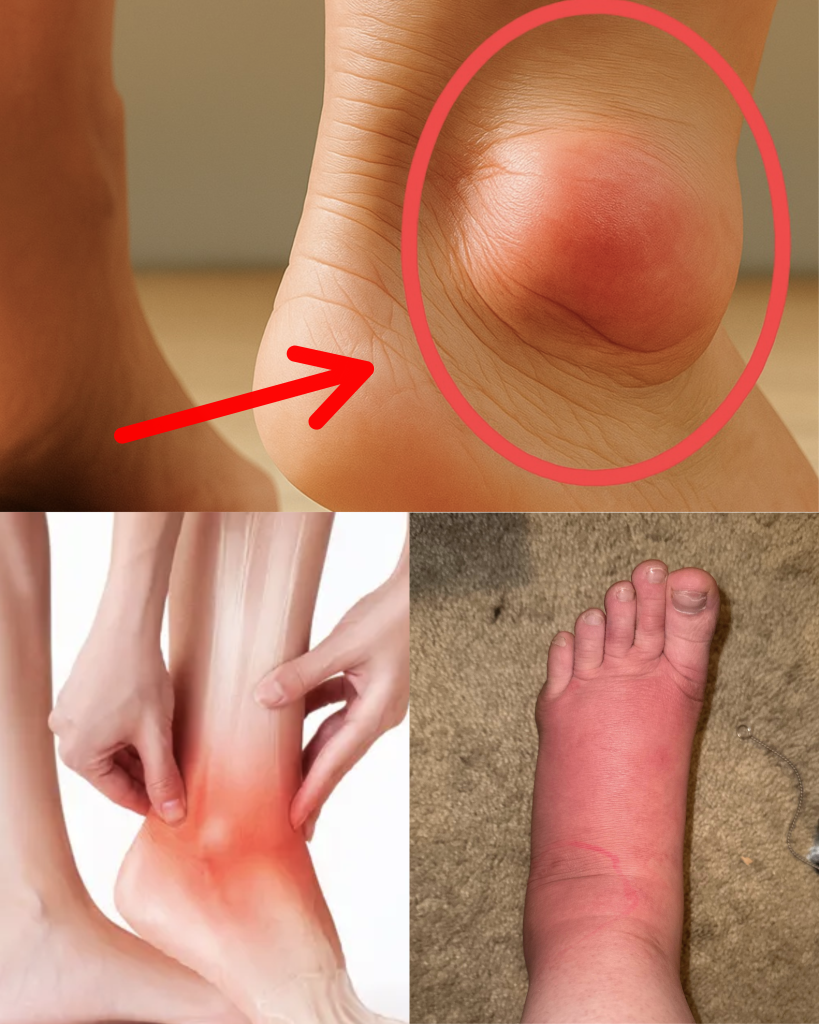Have you ever noticed your feet becoming swollen or puffy after a long day, indulging in salty foods, or spending time in hot weather? You’re definitely not the only one. Swelling in the feet, known medically as edema, is a surprisingly common experience. Although it can feel uncomfortable or annoying, in most cases, it’s harmless and temporary. The great news is that there are easy and natural methods you can try at home to help reduce that swelling and get relief.
Why Do Our Feet Tend to Swell?
Swelling in the feet can occur for many everyday reasons, including:
- Warm temperatures causing blood vessels to expand
- Sitting or standing still for extended periods without moving
- Consuming too much salt or processed foods
- Not drinking enough water (dehydration)
- Pregnancy or taking certain medications such as blood pressure drugs
Usually, foot swelling isn’t something to be overly concerned about. However, if the swelling persists for days, worsens, or becomes painful, it may indicate an underlying health issue such as circulation problems, kidney complications, or issues with your lymphatic system. In such cases, it’s wise to consult a healthcare professional for evaluation.

Easy and Natural Remedies to Reduce Swelling
Here are some practical steps you can take to alleviate foot swelling naturally:
1. Use a Cool Compress for Fast Relief
Wrap several ice cubes in a soft towel and apply it to your feet for about 15 to 20 minutes. The cold helps reduce inflammation and provides soothing relief, especially after spending time walking or being out in the heat.
2. Elevate Your Legs
Raise your legs above heart level by lying down and placing pillows under them or resting them against a wall. This position encourages fluid to move back toward your heart, helping to decrease pressure and swelling in the feet.
3. Relaxing Foot Soaks
Prepare a warm foot bath with water and add a generous amount of Epsom salt. The warmth will soothe your muscles, while the salts help draw out excess fluids. For an extra calming experience, add a few drops of lavender essential oil to the water.
4. Alternate Hot and Cold Baths
Fill two basins—one with hot water, the other with cold. Soak your feet in the hot water for 3 to 5 minutes, then switch to the cold water for 30 to 60 seconds. Repeat this cycle for 15 to 20 minutes. This hot-cold contrast stimulates circulation and assists in reducing fluid retention.
5. Support Your Body With Nutrients
A deficiency in magnesium, vitamin E, or omega-3 fatty acids can sometimes contribute to water retention. Boost your intake by eating magnesium-rich foods such as spinach, almonds, and avocados. If necessary, consult your doctor about supplements.
6. Gentle Foot Massage Using Essential Oils
Combine a few drops of peppermint or cypress essential oil with a carrier oil like coconut or almond oil. Massage your feet gently in circular motions, starting at the toes and moving upward. This technique can improve blood flow and offers a relaxing sensation after a long day.
Lifestyle Changes That Make a Big Impact
Watch Your Eating Habits
Cut down on:
- Salt
- Processed and packaged foods
- Alcohol
- Caffeine
Instead, focus on eating:
- Hydrating fruits and vegetables like cucumbers and watermelon
- Potassium-rich foods such as bananas, spinach, and sweet potatoes
- These foods help your body flush out excess sodium and maintain a balanced fluid level.
Sip Herbal Teas
Teas made from dandelion, parsley, or cherry stems can have a mild diuretic effect, encouraging your body to naturally eliminate surplus fluids.
Choose Footwear Carefully
Avoid shoes that are too tight or high heels, as they can restrict blood flow. Opt for soft, breathable shoes that allow your feet room to move freely. If swelling happens frequently, consider buying shoes half a size larger for extra comfort.
When Should You See a Doctor?
It’s important to seek medical attention if the swelling:
- Lasts longer than a few days
- Is accompanied by pain, redness, warmth, or fever
- Occurs only in one foot or leg
- Comes with symptoms like shortness of breath or chest pain
- These signs may indicate a more serious health issue requiring prompt professional care.
Final Thoughts
Swollen feet can be bothersome, but they don’t have to hold you back. With a few simple remedies, healthy dietary choices, and some mindful self-care, you can reduce swelling and feel lighter on your feet once again.
Tonight, try soaking your feet, elevating your legs, or applying a cool compress — you’ll likely be surprised at how much better your body feels overall.